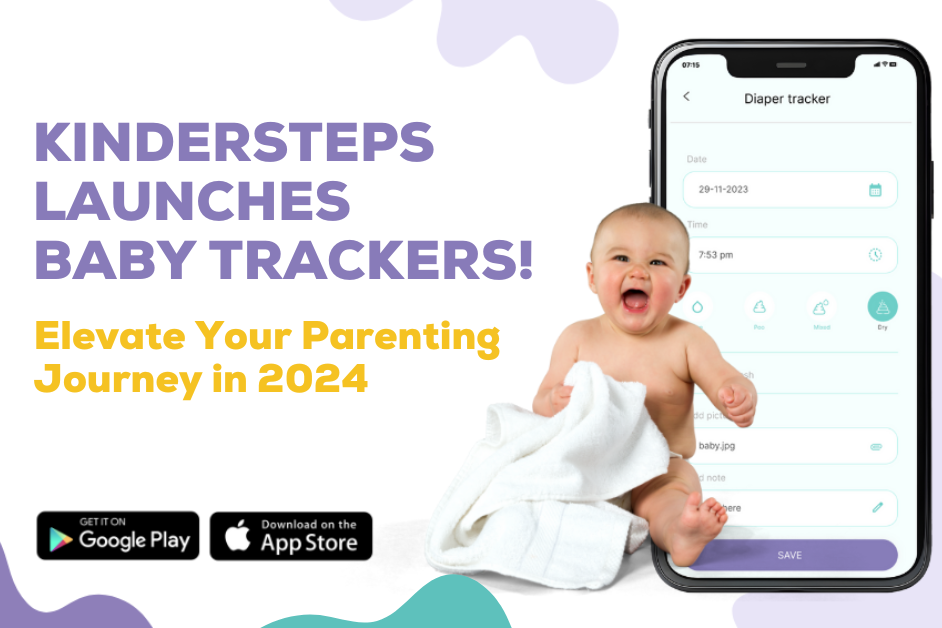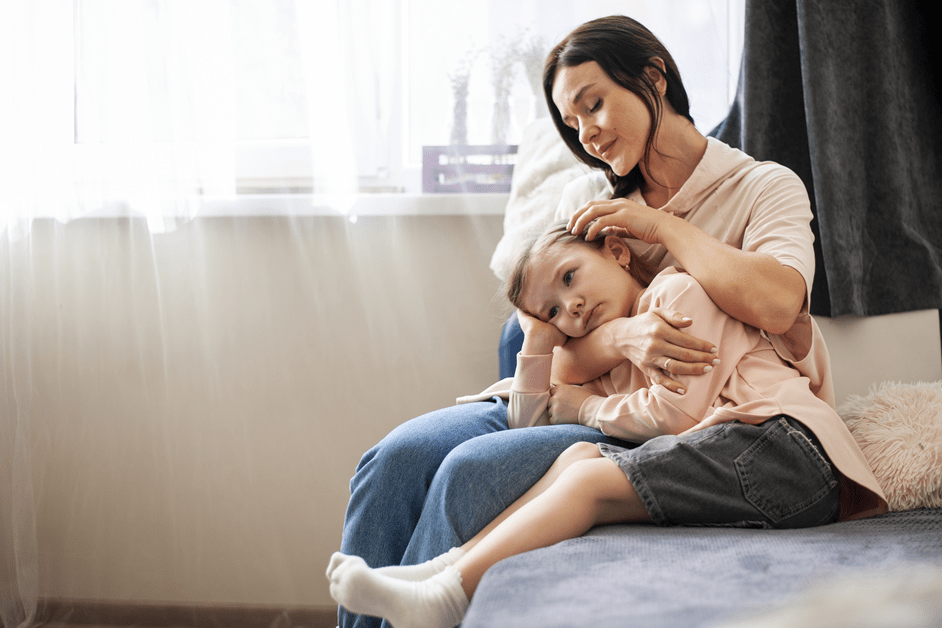10 Highly Recommended Tips for Parents with Newborns
One of the scariest and most exciting moments is when you’re able to take your newborn home from the hospital for the first time. Common feelings can be anywhere from “is this real?” to the almost overwhelming feeling that you’re suddenly left to care for a baby. Your mind is racing with thoughts, questions, and concerns. Don’t worry, you got this! We’ve put together some of our highly recommended tips for your newborn.
What will happen before I bring my baby home?
Before you leave the hospital, you can be assured that doctors and staff have confirmed that your baby:
- Has a normal temperature
- Is eating well
- Passed a bowel movement/had a wet diaper
- Is breathing well
- Has not lost a substantial amount of weight
Ensuring your baby is eating well: Be prepared - babies eat. A lot. Whether you’re going the formula route or breastfeeding, it’s not always as easy as it looks. From latching to when and how much they should eat, it can be overwhelming. Here are a few things to keep in mind when feeding a newborn:
- Don’t be afraid to ask for help. Whether it’s your first newborn or your fifth, figuring this out on your own is a lot harder than when you have support.
- Use your hospital resources. If you have the opportunity, ask a nurse, take a nursing class or check in with staff on their recommendations.
- Prepare yourself before immediately feeding. It’s natural to want to drop everything after your baby cries. Feeding can take a while so take a moment to pee, grab some water, get a magazine - whatever you need to feel comfortable.
- Allow your newborn to control their movements freely rather than constantly swaddling them.
- Babies can learn how to smile! Make eye contact and smile often at your baby to encourage them.
- Say your baby’s name as much as possible, so they begin to recognize it.
- Promote tummy time so your baby can practice lifting their head and shoulders.
- Speak softly so your baby can begin to remember/copy your words. They respond best to soft sounds rather than loud, quick tones.
- Good quality diaper bag - preferably with a washable or wipe-able fabric
- Food - for you and the baby! If you’re breastfeeding, that’s one less thing to worry about
- Wipes! Suitable for cleaning hands, surfaces, and your baby’s bottom
- Extra baby clothes - no matter what end it comes out of, sometimes it’s not pretty
- T-shirt. This one is for the parents! Just in case your little one ruins your outfit with some spit-up
- Soother and a back-up soother. Maybe even a backup to your backup
- If your baby is more than four months old, you can even pack a few favorite toys
They won’t let you go home with the baby unless they are sure that the time is right. So no matter how scary it is to be parents of a newborn, be assured that you are in good hands and we are providing you with all the support you need.
Your baby’s journey from the hospital to home
It’s normal to feel nervous when you first bring your baby home. Try to protect this time for you and your family so that you can adjust to all the changes.
Consider buying, renting, or borrowing a car seat before your baby's born, when you have time to choose carefully. There are two kinds of car seats for babies: infant-only seats (which must be replaced when your baby weighs 22 to 35 pounds, depending on the type of seat) and convertible seats that accommodate both infants and older children.
Some parents of newborns find that a "travel system" (which includes a stroller and an infant-only car seat that can be attached to the stroller) makes it much smoother to transition babies — especially sleeping ones — from the car to the stroller.
Never put a rear-facing infant or convertible seat in the front seat of your car — always use the rear seat. Passenger-side airbags in the front seat cabin are hazardous for both rear- and forward-facing car seats and most accidents happen at the front passenger area of the car. When it's cold, strap your baby in first, then put blankets over the baby.
If you borrow a car seat, make sure that it's not more than 6 years old and was never in a crash (even if it looks OK, it could be structurally unsound). Avoid seats that are missing parts or aren't labeled with the manufacture date and model number (you'll have no way to know about recalls).
Introducing your baby to family and friends
Ask your partner to be the gatekeeper for visitors and to limit the number of guests at first. You'll be glad later on if you take some time now to rest and become comfortable with your new situation. Although babies typically aren't shy around strangers for the first 3 months or so, they may become overstimulated and tired if too many people are around.
Don't be shy about accepting visitors slowly. Ask anyone who's ill to wait until they're feeling well and no longer contagious before they visit. You shouldn't hesitate to ask visitors to wash their hands before holding your baby because a newborn’s immune system is not fully developed.
Caring for a new baby is tiring! Ask for help from family members and friends -- you need sleep, too. You can also condition yourself to nap when the baby naps. You’re going to be getting a lot of advice from different people and influences in your life about whether you let the baby control the sleep schedule or if you’re going to dictate it for them. There’s no one-size-fits-all answer for every kid - you have to find what works for you. What we do know is that newborns can log as many as 16 hours of sleep in a day - but in short bursts.
Here are a few things you can do to help your baby fall asleep, whether it’s on your schedule or theirs:
Create Movement: Whether you’re rocking, swaying, shuffling, or gently bouncing, this movement can soothe your baby into a calm sleep. The best time to put them down is when they’re drowsy instead of fully asleep, so they learn to drift off without movement as well.
Get a White Noise Machine or App: Parents have reported that the sound of a vacuum cleaner calmed their baby. Once it was discovered that the answer was white noise, machines and apps have taken the traditional house cleaning product’s place.
Keep Your Baby Warm: Remember that your newborn is used to the comfort of the womb - mimicking that may help them relax and fall asleep. You can do this by swaddling them, keeping them cozy in a more contained space like a bassinet, and maintaining the right temperature in the room. Be careful not to turn the room up too hot as that can increase the risk of sudden infant death syndrome (SIDS).
While your baby’s body is developing at lightning speed, its brain absorbs an incredible amount of information. Research shows that babies talked to throughout their first few years of life usually learn language skills more easily than those who are not. Newborns are more interested in their caregivers than they are in toys or other objects. Here’s what you can do to help:
Diaper bag checklist: Babies need a lot of gear. Your diaper bag is going to become your home away from home. Choose a bag with lots of pockets. You'll need them to fit all of your baby's needs, plus the contents of your purse. Easily accessible pockets will let you grab a diaper or your cell phone quickly when you need it.
Your first outing with your newborn might be daunting. Follow this checklist, and you’ll feel a lot more confident about the first time you leave home with your baby.
Don’t sweat the small stuff. Parenting is a journey and one of the most important and rewarding things you can do. Caring for a newborn can be overwhelming but enjoy the little moments. It truly does go by in a flash!
Kindersteps will guide you through this parenting journey from the day you become a parent. Kindersteps, a complete solution for early childhood development and parenting bundled together on one platform. Kindersteps, trusted by parents across the globe. Learn more at https://mykindersteps.com/ and download our app for free.




.jpg?alt=media&token=166b64a9-274c-400c-95e4-baf0013e7e43)


